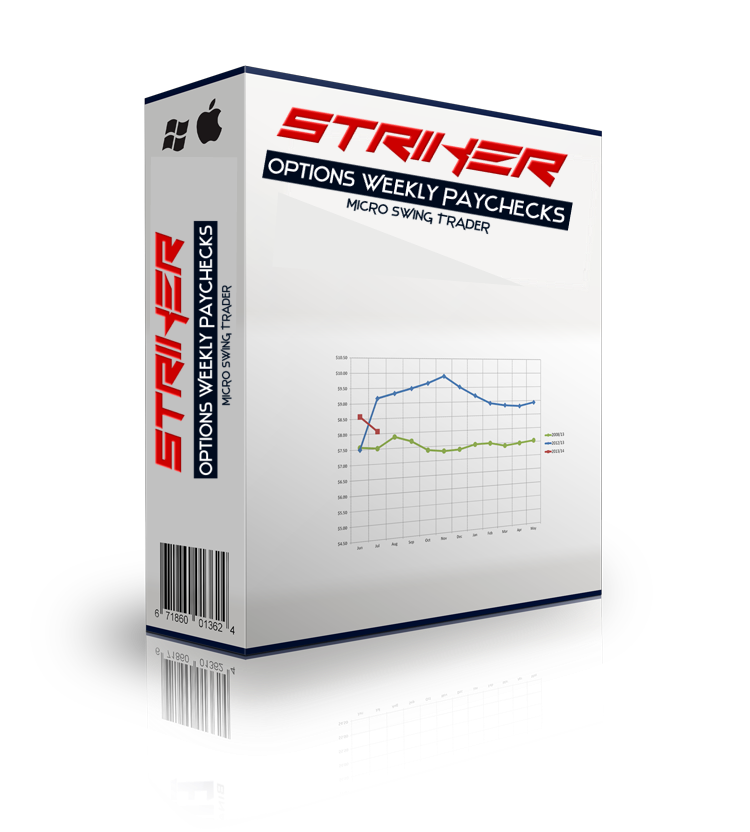Weekly Options Trading – Learn from the Best with Some of the Most POWERFUL Weekly Options Trading Systems on the Planet Here at OptionsWeeklyPaychecks.com
Weekly Options Trading – The Ultimate Guide to Short-Term Profits
Hey there, options enthusiasts! Are you ready to dive into the fast-paced world of weekly options trading? Buckle up, because we’re about to embark on a thrilling journey through the ins and outs of this exciting trading strategy. Whether you’re a seasoned trader looking to spice up your portfolio or a curious newcomer eager to learn, this guide has got you covered. So, let’s jump right in and explore the wild world of weekly options!
What Are Weekly Options?
Before we get into the nitty-gritty, let’s start with the basics. Weekly options are, well, exactly what they sound like – options contracts that expire every week, typically on Friday. They’re like the sprinters of the options world, designed for short-term traders who want to capitalize on quick market movements.
The Evolution of Weekly Options
Weekly options aren’t new kids on the block anymore. They’ve been around since 2005 when the Chicago Board Options Exchange (CBOE) introduced them for the S&P 500 index. Since then, they’ve exploded in popularity, and now you can find weekly options on a wide range of stocks, ETFs, and indices. It’s like the options market went on a caffeine binge and decided to speed everything up!
Key Differences from Standard Options
So, what sets weekly options apart from their monthly counterparts? The main difference is, you guessed it, time. While standard options typically expire monthly, weeklies give you the chance to trade on a much shorter time frame. It’s like comparing a microwave meal to a slow-cooked roast – both have their place, but one’s definitely faster!
Advantages of Trading Weekly Options
Now that we’ve got the basics down, let’s talk about why you might want to add weekly options to your trading toolbox. There are several juicy benefits that make weeklies attractive to many traders.
1. Increased Flexibility
Weekly options give you more opportunities to trade around specific events or market conditions. Got a hunch about an upcoming earnings report? Weekly options let you act on that without committing to a longer-term contract. It’s like having a Swiss Army knife instead of a single-purpose tool – you’ve got more options at your fingertips.
2. Lower Costs
Because weekly options have a shorter lifespan, they’re generally cheaper than their longer-term counterparts. This means you can potentially control the same amount of stock for less capital. It’s like getting a designer outfit at outlet prices – same quality, lower cost!
3. Higher Potential Returns
With lower costs come the potential for higher percentage returns. Of course, this is a double-edged sword (more on that later), but for traders who make the right moves, the rewards can be substantial. Think of it as high-stakes poker – the risks are higher, but so are the potential payoffs.
Risks Associated with Weekly Options
Now, I wouldn’t be doing my job if I didn’t warn you about the risks. Weekly options trading isn’t all sunshine and rainbows – there are some storm clouds you need to watch out for.
1. Time Decay
Time decay, or theta, is the options trader’s worst enemy, and it’s particularly vicious with weekly options. As expiration approaches, options lose value faster and faster. It’s like watching ice cream melt on a hot summer day – the closer you get to the end, the faster it disappears.
2. Increased Volatility
Weekly options can be much more volatile than their longer-term cousins. This means bigger price swings and potentially larger losses if things don’t go your way. It’s like riding a rollercoaster instead of a merry-go-round – thrilling, but not for the faint of heart.
3. Limited Time for Error Recovery
With weekly options, you have less time to recover from a bad trade. If you make a mistake on Monday, you’ve only got a few days to turn things around before expiration. It’s like trying to cram for an exam the night before – possible, but stressful!
Popular Weekly Options Trading Strategies
Alright, now that we’ve covered the good, the bad, and the ugly, let’s talk strategy. Here are a few popular ways traders use weekly options to their advantage.
1. Buying Calls and Puts
This is the most straightforward strategy – you’re simply betting on the direction of the stock. If you think it’s going up, buy a call. If you think it’s going down, buy a put. It’s like placing a bet on a horse race – simple, but potentially lucrative if you’re right.
2. Credit Spreads
Credit spreads involve selling one option and buying another at a different strike price. This strategy can help limit your risk while still allowing you to profit from time decay. It’s like being the house in a casino – you’re setting up the odds in your favor.
3. Iron Condors
Iron condors combine two credit spreads – one bullish, one bearish. This strategy profits when the stock stays within a certain range. It’s like betting on a tie in a sports match – not flashy, but potentially profitable in the right circumstances.
How to Get Started with Weekly Options
Feeling pumped and ready to dive in? Here’s a quick guide to getting started with weekly options trading.
Step 1: Choose a Reliable Broker
First things first, you need a broker that offers weekly options trading. Look for one with low fees, good educational resources, and a user-friendly platform. It’s like choosing a gym – you want one that has all the equipment you need and doesn’t cost an arm and a leg.
Step 2: Develop a Trading Plan
Before you start throwing money around, develop a solid trading plan. This should include your goals, risk tolerance, and strategies you plan to use. Think of it as your trading roadmap – without it, you’re just wandering aimlessly.
Step 3: Practice with Paper Trading
Many brokers offer paper trading accounts where you can practice with virtual money. Use this to test your strategies without risking real cash. It’s like using training wheels before hitting the open road – a little practice can go a long way.
Advanced Techniques for Weekly Options Traders
Ready to level up your weekly options game? Here are a couple of advanced techniques to consider.
1. Volatility Trading
Instead of betting on price direction, you can use weekly options to trade on volatility itself. Strategies like straddles and strangles can profit from big moves in either direction. It’s like being a weather forecaster – you’re predicting the storm, not which way the wind will blow.
2. Earnings Plays
Weekly options are great for trading around earnings announcements. You can set up positions to profit from the volatility that often accompanies these events. It’s like surfing – you’re riding the waves of market reaction.
Risk Management in Weekly Options Trading
I can’t stress this enough – risk management is crucial in weekly options trading. Always use stop-losses, diversify your positions, and never risk more than you can afford to lose. Remember, it’s a marathon, not a sprint (even if weekly options feel like a 100-meter dash).
Tools and Resources for Weekly Options Traders
To succeed in weekly options trading, you need the right tools. Some essentials include:
- Options pricing calculators
- Real-time market data
- Technical analysis software
- A good understanding of implied volatility
It’s like being a carpenter – you need the right tools for the job.
Common Mistakes to Avoid
Even experienced traders can fall into traps with weekly options. Some common mistakes to watch out for include:
- Overtrading
- Ignoring implied volatility
- Not having an exit strategy
- Risking too much on a single trade
Avoiding these pitfalls is like dodging potholes on a road – it makes for a much smoother journey.
The Future of Weekly Options Trading
As markets continue to evolve, weekly options are likely to become even more popular. We might see even shorter-term options or new exotic varieties. The key is to stay informed and adaptable. It’s like surfing again – you need to be ready to catch the next wave.
Conclusion
Whew! We’ve covered a lot of ground, haven’t we? Weekly options trading can be an exciting and potentially profitable addition to your trading arsenal. But remember, with great power comes great responsibility. Always trade within your means, manage your risks, and never stop learning.
Whether you’re looking to generate extra income, hedge your positions, or simply enjoy the thrill of short-term trading, weekly options offer a world of opportunities. So why not give them a try? Who knows, you might just find your new favorite trading strategy!
FAQs
- Q: Can I trade weekly options in my retirement account? A: It depends on your account type and broker. Some retirement accounts allow options trading, but there may be restrictions.
- Q: How much money do I need to start trading weekly options? A: While you can start with as little as a few hundred dollars, it’s generally recommended to have at least $5,000 to $10,000 to trade options effectively.
- Q: Are weekly options more risky than monthly options? A: They can be, due to their shorter time frame and increased sensitivity to price movements. However, risk ultimately depends on how you use them.
- Q: Can I exercise weekly options before expiration? A: Yes, American-style options can be exercised at any time before expiration. However, it’s more common to close the position by selling the option.
- Q: How do dividends affect weekly options? A: Dividends can impact option prices, especially for contracts expiring near the ex-dividend date. Be sure to factor this in when trading options on dividend-paying stocks.







